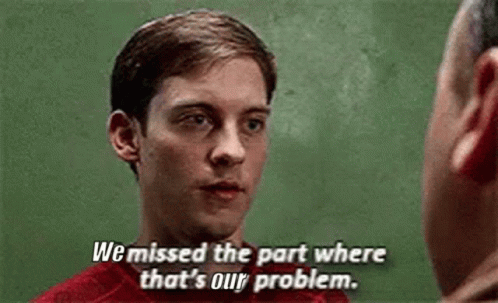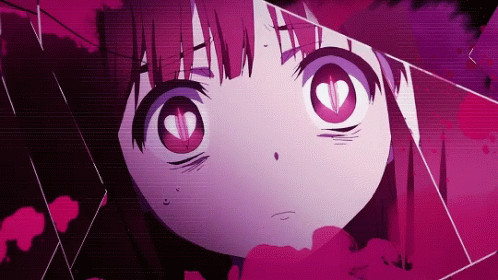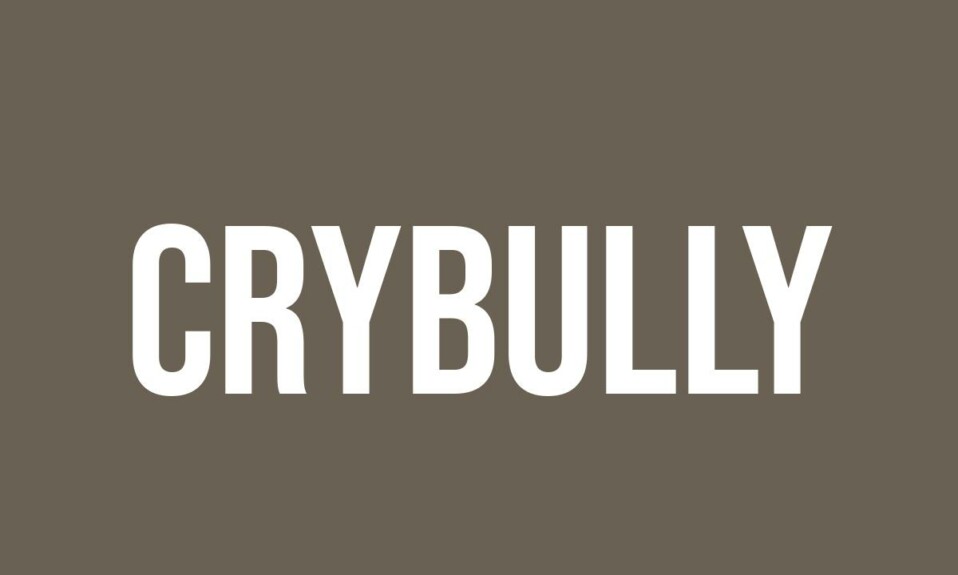What Does Crybully Mean?
The term crybully refers to a person who bullies others while portraying themselves as the victim. It is a combination of the words “crybaby” and “bully” and is commonly used to describe individuals on social media who use perceived offenses as an excuse to harass others. Crybullies have a tit-for-tat mentality and can find any reason to get upset. They are particularly volatile when it comes to politics, so caution is advised. The term originated in online communities, especially on platforms like Twitter and Facebook, where crybullies are most prevalent. These individuals take offense to something and use it as a justification to attack others. They often adopt a victim mentality and use it to manipulate others into taking their side. Crybullies can be relentless in their attacks, making others feel targeted and harassed. Here are some examples of how the term crybully can be used:
- “She called him out for being insensitive to her gender identity, then proceeded to flood his wall with hateful posts about his support for abortion. What a crybully.”
- “He criticized someone’s political views, and in response, they labeled him a racist and tried to get him fired. Classic crybully behavior.”
- “A celebrity made a harmless joke, and the crybullies on Twitter launched a campaign to cancel them. It’s absurd how easily offended people can be.”
- “A politician expressed an opinion that some people disagreed with, and the crybullies inundated their social media with hate and threats. It creates a toxic environment.”
- “A journalist wrote an article that challenged popular opinions, and the crybullies accused them of spreading misinformation and attempted to have them banned from writing. It’s unfortunate how intolerant some people can be.”
It’s important to note that the term crybully does not have a sexual connotation. It is simply used to describe individuals who engage in bullying behavior while portraying themselves as victims. The term is intentionally coined to describe a specific type of behavior and is not a typo or mistake.



What Does Crybully Mean From a Girl?
When a girl uses the term crybully, she is likely referring to the same meaning as everyone else. Crybully is a term that can be used by both girls and guys to describe individuals who bully others while portraying themselves as victims. It is not specific to any gender.
However, it’s worth noting that girls may use the term crybully in different contexts or situations compared to everyone else. Here are a few possible differences:
- Online communities: Girls may encounter crybullies more frequently on platforms like TikTok, Snapchat, or even in text messages with friends. These platforms provide opportunities for crybullies to engage in their behavior and manipulate others.
- Friendship dynamics: Girls may use the term crybully when discussing conflicts or drama within their friend groups. It can be a way to describe someone who constantly plays the victim and uses it as an excuse to mistreat others.
- Response strategies: Girls may have different strategies for dealing with crybullies. They might choose to confront the crybully directly, seek support from friends, or even block and ignore them. It’s important to find a response strategy that feels comfortable and safe.
If someone uses the term crybully in a conversation with you, it’s best to take it seriously and consider the context of the situation. If you feel uncomfortable or targeted by someone’s behavior, it’s perfectly acceptable to express your feelings or set boundaries. Remember, no one deserves to be bullied or mistreated, and it’s important to prioritize your well-being.
Example 1:
- Girl A: Ugh, I can’t believe she’s playing the victim again.
- Girl B: Yeah, she’s such a crybully. Always making herself out to be the victim when she’s the one causing all the drama.
Example 2:
- Girl A: Did you see that TikTok video? This girl was crying and saying everyone hates her, but she’s the one who started the fight.
- Girl B: Classic crybully move. Trying to manipulate people’s emotions and make herself look innocent.
Example 3:
- Girl A: I had a falling out with my friend. She keeps blaming me for everything and playing the victim.
- Girl B: Sounds like she’s being a crybully. Don’t let her guilt trip you into taking responsibility for her actions.
Example 4:
- Girl A: I’m so tired of dealing with this drama. She’s always making herself out to be the victim.
- Girl B: Yeah, she’s a total crybully. It’s exhausting trying to reason with someone who refuses to take responsibility for their actions.
Example 5:
- Girl A: I can’t believe she’s spreading rumors about me and then acting like I’m the bad guy.
- Girl B: Don’t let her get to you. She’s just a crybully trying to bring you down. Stay strong and rise above it.
What Does Crybully Mean From a Guy?
When a guy uses the term crybully, it can have the same meaning as when a girl uses it. Crybully is a term that can be used by both guys and girls to describe individuals who bully others while portraying themselves as victims. It is not specific to any gender.
However, guys may use the term crybully in different ways or contexts compared to girls. Here are a few possible differences:
- Online interactions: Guys may encounter crybullies more frequently on platforms like TikTok, Snapchat, or even in text messages with friends. These platforms provide opportunities for crybullies to engage in their behavior and manipulate others.
- Friendship dynamics: Guys may use the term crybully when discussing conflicts or drama within their friend groups. It can be a way to describe someone who constantly plays the victim and uses it as an excuse to mistreat others.
- Response strategies: Guys may have different strategies for dealing with crybullies. They might choose to confront the crybully directly, seek support from friends, or even block and ignore them. It’s important to find a response strategy that feels comfortable and safe.
If a guy uses the term crybully in a conversation with you, it’s best to take it seriously and consider the context of the situation. If you feel uncomfortable or targeted by someone’s behavior, it’s perfectly acceptable to express your feelings or set boundaries. Remember, no one deserves to be bullied or mistreated, and it’s important to prioritize your well-being.
So, whether it’s a girl or a guy using the term crybully, it generally refers to individuals who engage in bullying behavior while portraying themselves as victims. The term is not specific to any gender and can be used by anyone to describe this type of behavior.
Example 1:
- Guy 1: Did you see that guy on Twitter who got offended by a harmless joke and started attacking everyone?
- Guy 2: Yeah, what a crybully! Can’t handle a little humor without playing the victim.
Example 2:
- Guy 1: This girl in my class always acts like she’s being mistreated, but she’s the one causing drama.
- Guy 2: Classic crybully behavior. They love playing the victim to get attention.
Example 3:
- Guy 1: I can’t believe how easily some people get offended over political opinions.
- Guy 2: It’s ridiculous. They turn into crybullies and start attacking anyone who disagrees with them.
Example 4:
- Guy 1: There’s this guy in my gaming group who always plays the victim when he loses.
- Guy 2: Ugh, crybullies ruin the fun. Can’t handle losing without throwing a tantrum.
Example 5:
- Guy: My ex-girlfriend constantly played the victim and made me out to be the bad guy.
- Friend: Sounds like she was a real crybully. Good thing you’re not with her anymore.
Origin of Crybully
The origin of the word “crybully” is not clear. It appears to be a combination of the words “crybaby” and “bully,” suggesting someone who acts like a victim while engaging in bullying behavior. It is likely that the term originated in online communities, particularly on platforms like Twitter and Facebook, where crybullies are most prevalent. The term gained popularity as a way to describe individuals who use perceived offenses as an excuse to harass others. While it is possible that the word “crybully” was a typo or misspelling that gained popularity, there is no evidence to support this claim.
Frequently Asked Questions
Slangs similar to Crybully
Oversharers, bigoted individuals, butt hurt reactions, ignorance, private persons, trustworthy individuals, and judgmental people are similar to crybullies because they all involve behaviors or characteristics that contribute to the crybully mentality. These terms describe individuals who may engage in bullying behavior while portraying themselves as victims, manipulate others, or exhibit intolerance towards differing opinions.
Is Crybully A Bad Word?
No, “crybully” is not a bad word or vulgar word. It is a term used to describe someone who bullies others while playing the victim. It is often used to describe people on social media who use perceived slights as an excuse to harass others. While the term may have negative connotations, it is not inherently a bad or vulgar word.
Is Crybully a Typo or Misspelling?
The term “crybully” is not a misspelling or typo. It is a term used to describe someone who bullies others while portraying themselves as the victim.





